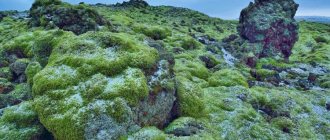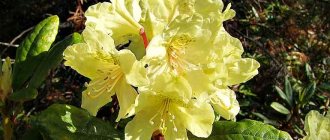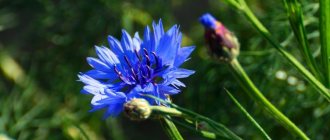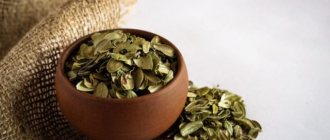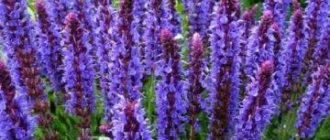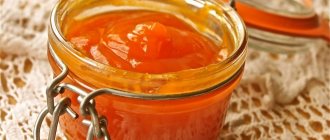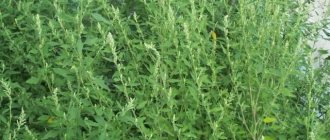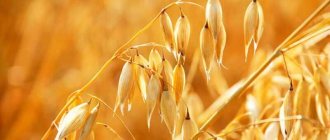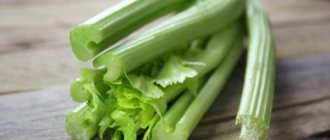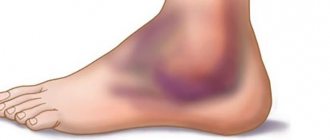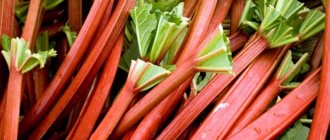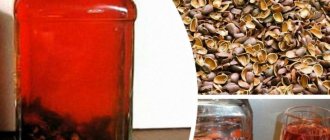The genus Gentiana, part of the Gentianaceae family, contains more than 350 species of herbs and shrubs. The distribution range of most species covers the temperate climate zone of the Northern Hemisphere. Some types of gentian have received registration in flower beds, others are considered weeds. Among the species diversity of gentians, there are also those whose medicinal properties were noticed by great healers in ancient times, and subsequently these species were adopted by scientific medicine in many countries. Among the officially recognized ones are yellow gentian (Gentiana lutea) and cross gentian (Gentiana cruciata). In folk medicine, in addition to these species, others are successfully used, for example, large-leaved gentian (Gentiana macrophylla) and pulmonary gentian (Gentiana pneumonanthe).
Gentian received its Latin generic name from the name of the Illyrian king Gentius, who, according to historians, used it during the plague epidemic.
Procurement of medicinal raw materials
The rhizomes and roots of gentian are used for medicinal purposes - they are harvested in late autumn, after the vegetative mass of the plant has died.
Commercial products are obtained from plants of the 4th – 5th year of life, therefore, currently, gentian is cultivated in specialized farms, where it is harvested for the needs of the pharmaceutical industry. Harvesting yellow gentian under natural conditions is prohibited, since its natural reserves are extremely depleted and the plant is on the verge of extinction, therefore it is listed in the Red Book. Gentian is not difficult to grow in a garden plot, but it must be taken into account that the plant prefers lime-rich soils.
Processing of roots and rhizomes is carried out in electric dryers, since during slow drying, bitter glycosides undergo enzymatic breakdown, which leads to a deterioration in the quality of the raw material.
The leaves of some types of gentian are sometimes used in folk medicine.
Organic compounds in gentian rhizomes
– Yellow gentian . Bitters from the group of glycosides (gentinin, gentiopicrin, gentiamarin [synonym - amarogentin]), the alkaloid gentianin, the content of which varies from 0.35 to 0.6%, were found in the roots and rhizomes. The roots of the plant synthesize a dye of the xanthone group, gentisin, which gives the raw material its characteristic yellow color. Carbohydrates are represented by the trisaccharide gentianose (about 15%) and the disaccharide gentiobiose.
– Gentian cross-leaved . The chemical composition of rhizomes with roots is similar to yellow gentian, so the use of these species in scientific medicine is the same.
– Gentian macrophylla . C-glycosides, saponaretin, and homoorientin were found in the roots.
– Gentian pulmonary . Glycosides gentianin, gentiopicrin, gentiamarin.
Pharmacological action and application
Bitter glycosides are the most valuable component of medicinal raw materials; it is the bitterness that determines the medicinal properties of gentian.
In scientific medicine, the use of gentian is limited to the treatment of problems of the gastrointestinal tract: lack of appetite, atony (lethargy) of the stomach and intestines, decreased secretion of gastric juice, etc. In ancient medical sources there are indications that previously the scope of gentian was more extensive. For example, preparations of yellow gentian were prescribed in case of scrofula, as an anthelmintic, in the treatment of female problems (stopping menstruation, “pale sickness”), etc. Galen recommended gentian for diseases based on a violation of water-salt metabolism (for example, gout ), as well as for rheumatism.
In folk medicine, gentian is used to treat stomach diseases and as a choleretic agent for disorders of the liver and gall bladder.
Useful properties of gentian
All varieties of the plant have medicinal properties and are therefore used for medicinal purposes. The roots and aerial parts contain a large amount of biologically valuable substances that have a positive effect on the human body.
The plant is valued for the fact that it contains a bitter substance, which can be used to cure diseases of the intestines, stomach, and improve appetite. Glycosides have an antispasmodic effect on the human body.
Scientists have found that gentian root contains a sufficient amount of amarogentin, gentiopicrin, bitter glycosides - a little amaropanin, more amarosverine. The root contains alkaloids.
Due to the fact that gentian contains a sufficient amount of gentianin, it is possible to cure a cough, get rid of a convulsive condition, reduce high body temperature, it is the best anti-inflammatory and sedative medicine.
Gentian yellow preparations
When using gentian as part of multicomponent preparations, combination with lead acetate and ferrous sulfate should be avoided.
– Infusion (“cold”) . This is the simplest way to use gentian - the infusion is recommended for gastrointestinal disorders (persistent heartburn, intestinal atony, lack of appetite and poor digestion, chronic constipation). Traditional healers often recommend an infusion of yellow gentian rhizomes in the complex treatment of pulmonary diseases (including tuberculosis). For 2 glasses of cold water you need to take half a teaspoon of crushed raw materials. Pre-boil the water and cool it. The duration of infusion is at least 8 hours, after which the liquid is strained and the raw material is squeezed out. Take three times a day; dosage - 100 - 120 ml (half an hour before meals).
- Decoction . Pour in cold water (700 ml of liquid required) 3 tsp. crushed raw materials. After boiling, reduce the heat to low and cook for a quarter of an hour. Then leave for 2 hours, and then pour the liquid from the sediment. When treating diseases that arise from metabolic disorders in the body (arthritis, gout, rheumatism), the decoction is prescribed 100 ml 3 or 4 times a day, which depends on the nature and severity of the disease. Externally, the decoction is used in the form of lotions to treat poorly healing and festering wounds.
– Gentian extract . Prepared at the rate of 20 g of gentian root per 100 ml of alcohol (70% strength). Dosage is from 10 to 30 drops per dose. The maximum permissible dose of medicinal extract is 35 drops.
– Bitters (Tinct. amara). Ingredients (based on 1 liter of alcohol of 60% strength): yellow gentian root, centaury herb, orange fruits - 60 g each and turmeric - 30 g. Grind the raw materials and add alcohol. Leave for 3 weeks, then squeeze out the raw materials and filter the tincture. Take bitter tincture in a dosage of 30 to 100 drops. The drug is prescribed in case of digestive disorders.
Medicinal properties
Preparations based on this plant are used to improve appetite, stimulate the secretion of digestive glands, have antibacterial and anti-inflammatory effects, increase heart contractions, improve bile secretion, as well as the formation of bile.
Diathesis, anemia and appetite disorders are indications for the use of drugs based on this plant. People who are undergoing rehabilitation after serious illnesses are prescribed infusions and decoctions of the roots of the plant.
In the fight against constipation, flatulence, gastric catarrh, diseases of jaundice, spleen, to stimulate the functioning of the gallbladder, liver, arthritis and scurvy, to strengthen the body, gentian has been used in traditional medicine for a long time.
The roots of the plant are used as medicinal raw materials. They begin to dig them out in the spring or autumn when they reach the age of four. The roots must be cleared of the ground, then cut from the stem, quickly rinsed under running cold water, then cut into pieces up to 15 centimeters, dried for a short time. The roots may lose their healing properties if dried for a long time. Raw materials are stored for less than 5 years in dry and always cool rooms.
Application
A decoction of gentian roots is used to improve appetite. Preparation of the decoction: 1 spoon of dry raw materials, add 250 milliliters of water and cook for 10 minutes. Take 20 grams before meals. To cure arthritis, rheumatism or gout, prepare the following decoction: dry raw materials 3 teaspoons, 700 ml of water, all this must be boiled for about 15 minutes, then left for 2 hours, apply 100 ml before meals. This decoction is not suitable for long-term storage.
Preparation of tincture against stomach diseases, constipation, heartburn, poor digestion, lack of appetite, malaria, tuberculosis: 50 grams of grass, half a liter of vodka, mix and let steep for 7 days. Use the tincture by first diluting 30 drops in 6 tablespoons of water.
To get rid of sweaty feet, you can prepare a decoction: a mixture of root 5 tablespoons, oak bark 1/3, boil. Before going to bed, take such baths every day.
Festering wounds can be sprinkled with a mixture of chamomile (powder) and gentian (powder).
Medical prescriptions (“Private pharmacology”, M. Weisberg)
1. Gentian root extract and centaury herb extract - 7.6 ml each; ox bile (dry) - 15 g; rhubarb root (ground into powder), as needed to prepare 0.124 g (2 grains) pills. Sprinkle the pills with cinnamon powder. For poor digestion and improper bile secretion, take 8-10 pills three times a day. Dr. Weikard.
2. Dissolve the extract of gentian rhizomes and roots (7.6 ml) and potassium carbonate (2.5 g) in mint water (150 ml), then add orange peel tincture (15 ml) and sugar (30 g). For poor digestion, take 1 tbsp three times a day. Dr. Behrends.
3. Boil gentian root (15 g) in 700 ml of water for half an hour. Mix the strained decoction with a hot infusion prepared from centaury, wormwood and calamus root (7.6 g of each herb). Take 2–4 glasses before lunch (1 glass = 30 ml). Dr. Montmanet.
Medicinal properties of gentian in modern herbal medicine
– Acute gastritis (against the background of low acidity). Herb St. John's wort and centaury, yellow gentian rhizome, yarrow (leaves and flower heads) - 2 g each; wild chicory herb - 3 g; herb fumyana officinalis - 4 g. Pour the mixture of herbs into 1 liter of water and leave for 12 hours. At the end of the infusion, bring to a boil and cook for 5 - 7 minutes, and then infuse for another quarter of an hour. Drink 1 glass of strained infusion on an empty stomach, and the rest 3 to 4 times during the day (before each meal).
– Gastritis (with high acidity). For 1 liter of dry white wine, take 10 g of calamus rhizomes, valerian and gentian roots, trifolium herb, St. John's wort and marshweed, tansy flowers. Infuse the herbal mixture in a glass container in the sun. Duration of infusion - 3 weeks. Take 2 tbsp. twice a day: in the morning on an empty stomach and before bedtime.
– Hepatitis . Collection: 15 g each of mint leaves, celandine herb, dandelion and gentian roots, buckthorn bark. Pour boiling water (250 ml) into 1 tbsp. herbal mixture and cook for 20 - 25 minutes. Take a glass of the strained broth before meals (2 times a day).
– Helminthic infestation (pinworms and roundworms). Ingredients (in equal proportions) for the medicinal collection: chamomile and tansy flowers, wormwood herb, buckthorn bark and gentian root. For a glass of water you will need 1 tbsp. herbal mixture. Cook for 20 minutes. Take a glass in the morning and evening for 3 days in a row.
– Dyspepsia . Mix 20 ml of wormwood and gentian tinctures, plus 5 ml of belladonna tincture. Take 30 drops before meals (three times a day).
– Colitis . Mix 20 ml of sage extract and 4 ml of yellow gentian tincture. Take 15 drops three times a day.
– Arthritis, gout . Collection: root of yellow gentian and bryonia (step), flower baskets of chamomile - 30 g each. Pour 1 tsp. herbal mixture 250 ml of water, bring to a boil and cook for a quarter of an hour. Take 1 glass per day, dividing the decoction into several (5 – 6) equal parts. Attention! The dosage must be strictly observed, otherwise poisoning may occur.
Methods of application
In folk medicine, gentian is used externally and internally in the form of infusions, decoctions, alcohol tinctures and dry powder. For their preparation, raw materials are prepared independently or purchased at a pharmacy.
Decoction for loss of strength and nervous exhaustion
Add a glass of boiling water to a mixture of crushed herbs and yellow gentian roots (2 tsp) and boil for 10 minutes. Then allow to cool to room temperature, filter and consume 100 ml three times a day 30 minutes before meals.
Appetite booster
The dried root of yellow gentian is ground. The resulting powder in the amount of 1 tbsp. l. place in a saucepan, add ¼ liter of water and cook over low heat for 10 minutes. Take the resulting decoction 15 minutes before meals, 20 ml. In case of lack of appetite and poor digestion, gentian root powder can be taken on the tip of a knife 30 minutes before meals and in dry form.
Decoction for rheumatism, gout, arthritis
Dry gentian root (1 heaped teaspoon) is poured into 300 ml of boiling water, brought to a boil and simmered over low heat for a quarter of an hour. Leave for 2 hours, then filter. The resulting solution is taken 20 minutes before meals, 100 ml for one day. A new decoction is prepared every day, since it cannot be stored for long.
Root decoction for sweaty feet
Gentian root (5 tbsp) and oak bark (3 tbsp) are boiled in 1 liter of water for 10 minutes. Then it is allowed to cool slightly, filtered and used externally in the form of foot baths every day before bed. If necessary, you can add a little water to the bath.
Remedy for festering wounds and ulcers
Prepare a powder from gentian root and chamomile flowers in a ratio of 1 to 1 and sprinkle it on problem areas on the skin.
Amenorrhea (traditional medicine recipes)
- Decoction . Pour 1 liter of red grape wine into an enamel bowl, and after boiling, add 3 tbsp. yellow gentian roots and cook at low boil for a quarter of an hour. Store the strained wine broth in the refrigerator. Take 100 ml 2 hours after meals.
– Collection No. 1 . Basil, chamomile (flowers), parsley leaves, St. John's wort, astragalus licorice, mantle and gentian cross-leaved. Take all ingredients in equal proportions (for example, 20 g each). For 3 cups of boiling water you need to take 3 tbsp. crushed mixture. Cook in a sealed container for 10 minutes, strain after cooling. Drink half a glass 2 hours after meals.
– Collection No. 2 . Ingredients: leaves of mint, wormwood, sage, rue; herb yellow gentian, St. John's wort, oregano, basil; hawthorn berries and flowers; mullein roots. The quantity of each component is the same (taken by weight). For half a liter of water - 2 tbsp. crushed mixture. Cook for 10 minutes, strain. Take 100 ml 2 hours after meals.
Rules for using the herb gentian
Taking herbal tinctures and decoctions should be strictly dosed. Medicines are prepared in several ways:
- To make a decoction, pour 240 ml of boiling water into 20 g of plant material. Place on medium heat and cook for 10 minutes. After this, filter and cool. Take 20 ml three times a day.
- Infusion with alcohol. Add 50 g of dried gentian to 500 ml of alcohol (can be replaced with vodka). Cover with a lid and leave for seven days. Take a maximum of 30 drops, diluted with water, three times a day.
- To infuse with water, 80 g of herb is poured into 2 liters of boiling water. Cover with a lid and leave for 2 hours. Take 120 ml three times a day. This product can be used for compresses and foot baths.
Use of other types of gentian
Gentian macrophylla
- Decoction . Pour 250 ml of water 1 tsp. crushed gentian roots, bring to a boil and simmer for 5 - 7 minutes. Leave for 4 – 5 hours, then strain. The medicinal decoction is taken in sips throughout the day (the daily dose is indicated in the recipe). Indications for use: respiratory tract diseases, including infectious ones, gastritis due to low acidity, internal bleeding.
– Wound healing ointment . Take 1 tbsp. fresh rhizomes of large-leaved gentian, roots of elecampane and milkweed grass (sunflower or other species). Grind the plant components thoroughly in a porcelain mortar with 1 tbsp. candied honey. Heat the pork fat, add the resulting mass and another 2 tsp. propolis tinctures. Mix the ingredients thoroughly with fat.
Gentian pulmonary
- Decoction . To prepare the decoction you need to take 1 tsp. raw materials (gentian roots) per glass of water. Cook after boiling for 10 minutes, then leave for 1 – 2 hours. Indications for use: fever, scrofulosis, arthritis, gout. The decoction is taken three times a day, 70 ml. The decoction is also used in case of helminthic infestation (to expel roundworms or pinworms).
Gentian cruciforme
The medicinal properties of this species are used in the preparation of decoctions intended to treat diseases associated with impaired water-salt metabolism in the body (gout, arthritis, rheumatism), various disorders of the gastrointestinal tract.
– Decoction of roots . Externally, the decoction is used for washing and lotions (purulent ulcers and difficult-to-heal wounds). 800 ml of boiling water requires 2 tsp. raw materials. Cook for 7 – 10 minutes, leave for 1 hour. The recommended dose for a single dose is 100 ml. Take half an hour before meals; three times a day.
Use of gentian in folk medicine
Traditional healers have long used gentian to treat tuberculosis, malaria and plague.
A decoction of the plant during flowering is taken for diseases of the nervous system, loss of strength, stomach pain and fainting. An aqueous extract of gentian is used as a hemostatic agent. An infusion of herbs and flowers is used for tuberculosis, bronchitis, throat diseases, pneumonia and as an antipyretic.
Important! The medicinal properties of the herb are used in the production of some alcoholic beverages. They are served after eating to speed up digestion.
Aqueous-alcoholic tincture exhibits anti-Trichomonas activity. As part of the collection, the infusion of flowers is used not only internally, but also topically. In Tibet, it is widely used to treat hypoacid gastritis and oral diseases.
For acute bronchitis, tonsillitis, aphonia and laryngitis, a remedy is prepared based on 300 ml of boiling water and 8 g of dry chopped grass. Leave for 2 hours, filter and take 120 ml five times a day.
Acute respiratory diseases are treated with an infusion prepared from 240 ml of boiling water and 5 g of dry chopped grass. After 1 hour, filter. Take 120 ml three times a day. In this case, the medicine must be warm. If you drink this infusion half an hour before eating, it will stimulate your appetite.
Brewed herb and gentian root help increase the body's resistance to infectious diseases and strengthen the immune system. Use during the entire treatment until ARVI completely passes. If you have a sore throat, rinse your sore throat several times a day.
Gentian decoction has a bitter taste
To improve blood flow in the body, brew gentian tea - 1 tbsp. l. the grass rhizomes are poured with 240 ml of boiling water. Boil for 5 minutes. The drink is divided into three parts and drunk before meals.
A decoction of the herb and gentian root is effective in combating joint diseases of various etiologies. The natural remedy reduces inflammation, relieves pain attacks, and restores joint mobility. Decoctions are used externally in the form of compresses, lotions, and rubbing. Also used internally.
Excessive sweating - hyperhidrosis - causes great discomfort, as it is accompanied by an unpleasant odor. To reduce symptoms or get rid of the disease, special foot baths are made. A decoction prepared from 60 g of oak bark, 1 liter of boiling water and 100 g of gentian is added to the water, boiled for a quarter of an hour and left for 45 minutes.
Liver diseases are treated with an infusion prepared from 0.5 tsp. raw gentian and 400 ml of heated water. The listed components are mixed and left overnight, then filtered. It is recommended to take 100 ml four times a day before meals, half an hour before meals.
If you mix 40 g of the plant and 600 ml of alcohol, and then leave the mixture for 14 days, the resulting medicine will help in the treatment of rheumatism. Rub the infusion on the affected joints.
Side effects and contraindications
It is necessary to avoid overdose of gentian preparations, as this can cause poisoning. If you follow the dosage specified in the recipe, you should usually not be afraid of side effects. Allergic reactions (headache) sometimes occur in people who have an individual intolerance to bitter and bitter-aromatic products.
Gentian preparations should not be taken during pregnancy, or in case of stomach or intestinal ulcers. If you have high blood pressure, it is better to avoid gentian.
